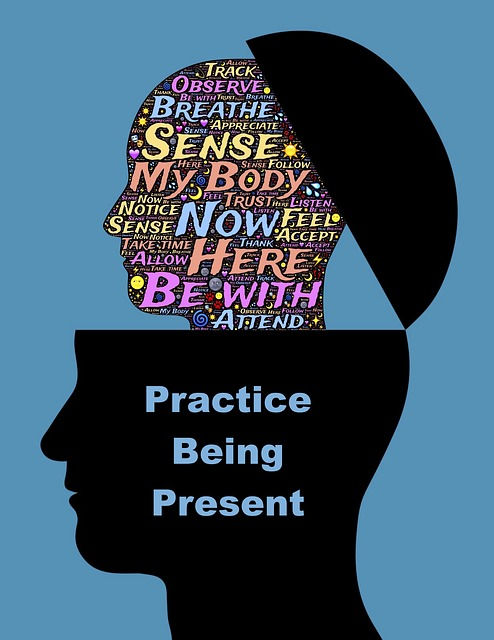3 Powerful Strategies for Back-to-School Anxiety in High School, Junior and Senior
- Christina Alliance

- Aug 31, 2019
- 6 min read
Updated: Sep 4, 2020
Your teen got nerves? Back-to-school anxiety? Back-to-school MATH anxiety?

It’s that time of year again!
For about half the country, the mad rush to finalize shopping for school supplies and clothes is just about over, or possibly just beginning if you haven’t gotten to it yet. That first day of school is here or only a couple of days away where kids have finally decided on what flashy first day threads they’re going to wear, will have pressed their way through that first day of school, made it to the classes and teachers they have unscathed, and yet are still wondering if this year is going to be a good one.
For the other half of the country, that ship sailed quite a few weeks ago and school is in full swing. So, whew…students have made it through those first day jitters!
BUT, it’s still the beginning of the school year and anxiety still exists, whether nerves or excitement, especially when we’re talking about math class.
Math class seems to be that one constant that a large part of the population, especially the youth, dreads. Math anxiety is rampant and adds to the overall stress of the school year, even more-so when a student has not historically done well in the content or experienced enough success to be comfortable in it.
High schoolers in particular wrestle with this as stress from their performance in math and math class compounds with stress from the idea that it directly impacts their GPA, their ability to graduate, scores on various high stakes tests such as end-of-course state exams and SATs/ACTs, acceptance in “good” post-secondary schools, earning scholarships, etc...to a teenager, it’s like it impacts their whole life! And if they struggle with math, and the fact that maybe they should’ve but didn’t review over the summer and have now forgotten everything they learned last year, then they’re dealing with stress upon stress upon stress...!
Is there a solution?
So, how do we, as parents and guardians, help our students overcome their fears?
How can we support our kids in having a stress-free start to the school year or, for that early half of the country, ease some of that stress they may have already been feeling?
How do we help them beat this back-to-school anxiety in high school?
Especially as it pertains to math class?
Well, I’ve got 3 powerful strategies you can use to help your student(s) get and stay in a positive mind-space for the school year, especially math class, and it’s NOT last-minute review/cramming of math skills they said they would do but maybe didn’t.
Ready? Here they go:

This first strategy is a K.I.S.S. tip (Keep It Simple Sugar). It’s reconnaissance.
Getting the lay of the land for your teen is a simple yet effective way to help calm the nerves. People tend to feel anxious because they don’t know what to expect, they don’t know what’s coming. So, give your student a leg up on the year and everyone else in their class by removing that burden:
Contact your student’s guidance counselor and introduce yourself to them. Find out what your child should expect and the counselor’s best strategies for starting the year off right. Open house, Welcome Back nights, Upper/Lower House nights, etc. are perfect times for this! Write down any you have in advance, Google some if you don’t have any, and be sure to the time to meet the counselor and ask your questions.
Contact your child’s teacher or, better yet, have your child contact their teacher to introduce themselves and find out what they should expect, BEFORE school starts, if possible, and what the teacher expects of them. Also, see if you and your child can meet the teacher the week before school starts. This way, the teacher is a familiar face to your child once class begins, and the teacher knows from the get-go that you’re a supportive and present parent. If school has already started, it's NOT too late! You can still get in touch with the teacher to discuss the expectations they sent home, ask any questions you have, and thank them for the information (they put a lot of work into its preparation). Don't wait until Open House or Welcome Back nights. Doing so NOW still puts you in a better position to help your child understand what they've been told/given and still gives the teacher the heads up that you're supportive and present.
Show up to Back-to-School night, Open House, etc. and join the PTA/PTSA. Teens like to roll their eyes and huff and puff when we’re always at the school, but deep down inside it makes them feel good knowing that we have their backs and that our actions prove it!
This second strategy is to teach and then encourage your teen to have a Growth Mindset.

Growth Mindset is almost like a buzzword these days. Educators consistently discuss, encourage, and teach it during the first days of the school year.
However, its effectiveness is greatly enhanced when reinforced at home. So, what is it?
Coined by Dr. Carol Dweck, “growth mindset is the underlying belief that abilities can be developed through effort and practice.” Its nemesis is a fixed mindset, which basically believes that you’re either smart or you’re not, and that can’t change no matter how hard you try so why bother.
That’s a common belief held by many, especially when it comes to math. However, the truth of the matter is that the brain has plasticity, which means it’s malleable and its “neural networks grow new connections, strengthen existing ones, and build insulation that speeds transmission of impulses.”
So, what does this mean? What’s the point?
Well, if your child understands and believes that their brain has the natural ability to learn, EVEN MATH, on a consistent basis, and they can get better through effort and practice, THEY WILL because they’ll be more willing to put in that effort, do that practice, and persevere rather than shutting down and quitting on a consistent basis!
So, how can you encourage a growth mindset, right? It starts with YOU!
First, find out more about growth mindset by reviewing the Parent’s section of the Mindsetworks website.
Second, figure out what kind of mindset you have and where you might have fixed mindset tendencies, nobody’s perfect! Mindsetworks has a quiz you can take to show you what you’re working with.
Third, start developing or encouraging a growth mindset at home. Mindsetworks also has a whole program you can implement with your child. It’s not free, but what’s the price tag on your child’s success?
However, if you’re not up to for the full program, you can still begin supporting your teen to have a growth mindset by simply changing the words you use. For example, rather than telling your child how smart they are, begin praising hard work and effort. They’ll begin to understand what’s really important and grow accordingly.
Last but not least, this final strategy is to help your teen practice mindfulness techniques.

According to mindful.org, "Mindfulness is the basic human ability to be fully present, aware of where we are and what we’re doing, and not overly reactive or overwhelmed by what’s going on around us."
Logan Thompson, author of Beyond the Content: Mindfulness as a Test Prep Advantage, takes that idea and strategically ties it into the “other half of test prep”, the part not usually addressed during review or prep classes, the “mental and emotional state, ...surfacing memories, ...underlying beliefs” that are always running through our minds.
Everyone has them, our youth maybe even more-so during this transitional time of their lives.
In his book, Thompson suggests that “by acknowledging the other half of test prep, exploring it, and working with it, you can gain access to your full potential,” which is exactly what we want for our students. Since we’re looking to go beyond test prep and support our kids through the entire school year, know that Thompson urges that “there is no life arena that can’t benefit from an enhanced awareness of the internal process,” and that “using mindfulness, over time, we can intimately learn each step in the mental flow chart, better allowing us to interrupt it at any given time.”
The ability to acknowledge and then deal with useless negative thoughts so that they can then calm themselves and gain access to their natural and actual abilities, is a fundamental way to encourage self-empowerment. What a profound tool to place in your student’s toolkit!
Let’s recap
So, in summary:
Do some recon and report your intel to your student.
Then, help them develop a growth mindset - make sure they understand that they really do have what it takes to succeed in math, succeed in school this year, indeed to succeed in life.
And finally, help them employ mindfulness techniques to quell the nagging and useless negative voices in their head that will try to squash their growth mindset, so they can gain access to and work in their full potential.
That’s it! 3 profound yet simple ways to help your student beat back-to-school anxiety in high school, in junior high school, in math class.
And now for the romance issues...but that’s another blog...by a different writer...somewhere…
How do you calm the fears and jitters of your back-to-school teen? If you have any other ideas, join the discussion and post them below!
I hope you found this article useful. If you did, please share - as the Care Bears always said, “Sharing is caring!”
Want to know more about how a personal online math tutor can help your child overcome math anxiety? Get in touch with Christina at: www.cmamathtutoring.com.
#mathanxiety #backtoschool #backtoschoolanxiety #highschool #backtoschoolanxietyhighschool #backtoschoolnerves #backtohighschool #backtojuniorhighschool #startoftheschoolyear #firstdayofschool #firstdaysofschool #cmamathtutoring #mathsuccess #nostressmath #growthmindset #mentalhalth #adolescentmentalhealth #teenmentalhealth
Photo credits to QASIM SADIQ on StockSnap.io, Hello I'm Nik 🇬🇧 on Unsplash, and John Hain from Pixabay



Comments